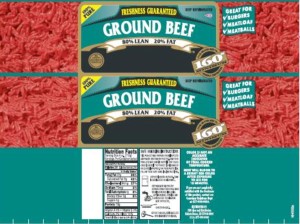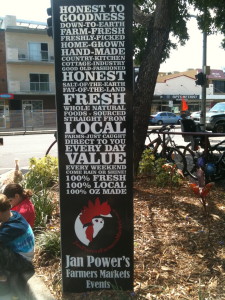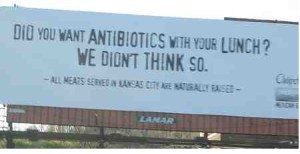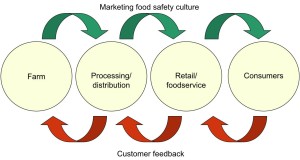Guess the Brits didn’t get that line about using a thermometer.
And the freshness is guaranteed, but not the safety.
 Tyson Fresh Meats, a Dakota City, Neb., establishment, is recalling approximately 16,000 pounds of ground beef products that may be contaminated with E. coli O157:H7, the U.S. Department of Agriculture’s Food Safety and Inspection Service (FSIS) announced today.
Tyson Fresh Meats, a Dakota City, Neb., establishment, is recalling approximately 16,000 pounds of ground beef products that may be contaminated with E. coli O157:H7, the U.S. Department of Agriculture’s Food Safety and Inspection Service (FSIS) announced today.
The ground beef items were produced on May 16, 2015. The following products are subject to recall:
5 lb. chubs of “80% Lean Ground Beef.”
The products subject to recall bear the establishment number “EST. 245C” inside the USDA mark of inspection and a “best before or freeze by” date of June 5, 2015. These products were shipped to one distribution location in New York.
FSIS discovered the problem during a routine sampling program. Neither FSIS nor the company received any reports of illnesses associated with consumption of this product. FSIS and the company are concerned that some product may have been sold and stored in consumers’ refrigerators or freezers.
E. coli O157:H7 is a potentially deadly bacterium that can cause dehydration, bloody diarrhea and abdominal cramps 2–8 days (3–4 days, on average) after exposure the organism. While most people recover within a week, some develop a type of kidney failure called hemolytic uremic syndrome (HUS). This condition can occur among persons of any age but is most common in children under 5-years old and older adults. It is marked by easy bruising, pallor, and decreased urine output. Persons who experience these symptoms should seek emergency medical care immediately.
FSIS routinely conducts recall effectiveness checks to verify recalling firms notify their customers of the recall and that steps are taken to make certain that the product is no longer available to consumers. When available, the retail distribution list(s) will be posted on the FSIS website at www.fsis.usda.gov/recalls.
FSIS advises all consumers to safely prepare their raw meat products, including fresh and frozen, and only consume product that has been cooked to a temperature of 160° F. The only way to confirm that ground beef is cooked to a temperature high enough to kill harmful bacteria is to use a food thermometer that measures internal temperature, http://1.usa.gov/1cDxcDQ.
Media with questions regarding the recall can contact Worth Sparkman, at (479) 290-6358 or worth.sparkman@tyson.com. Consumers with questions regarding the recall can contact the consumer hotline, at (866) 328-3156.










